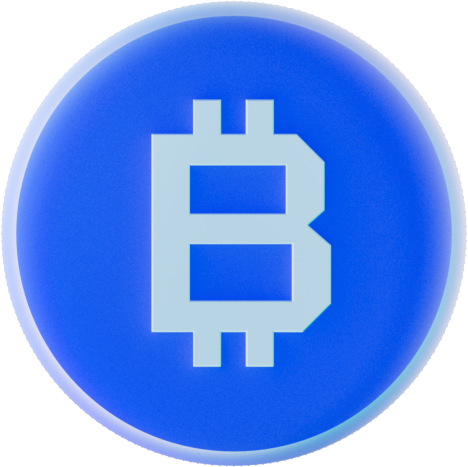Revolutionizing Gold Mining with Bitcoin Tokenization on the Liquid Network
- Member
- Sep 30
- 4 min read
Updated: 7 hours ago
In recent years, traditional industries have started to mingle with blockchain technology, bringing revolutionary changes to various sectors. One area that stands to benefit significantly is gold mining. The integration of Bitcoin and the Liquid Network represents a groundbreaking approach to tokenization. This post discusses how these technologies can improve transparency, efficiency, and accessibility in gold mining.
Understanding Tokenization
Tokenization converts rights to an asset into a digital token on a blockchain. For gold mining, this means creating a digital version of physical gold reserves. This transformation simplifies trading, ownership transfers, and investment options. By using Bitcoin and the Liquid Network, gold mining firms can build a more efficient and secure system for asset management.
Tokenization makes trading more efficient and opens up investment opportunities. Investors can buy fractions of gold tokens, making it easier for individuals who may not have enough money to buy physical gold outright. For instance, instead of needing $1,800 for a full ounce of gold, investors can enter the market with just $180 for a fraction. This accessibility invites more people to participate in the gold economy.
The Role of Bitcoin in Gold Mining Tokenization
Bitcoin, the leading cryptocurrency, is vital for the tokenization process. Its decentralized structure guarantees safe and transparent transactions, minimizing the chances of fraud. When gold mining firms use Bitcoin for transactions, they improve their operations and enhance trust with investors.
Additionally, Bitcoin's network is already established and liquid, making it an excellent choice for gold tokenization. For example, the ability to convert gold tokens to Bitcoin quickly allows more flexibility in trading strategies. This partnership between gold and Bitcoin fosters a robust ecosystem that benefits everyone involved—miners and investors alike.
The Liquid Network: Enhancing Efficiency and Privacy
The Liquid Network is a layer-2 solution on Bitcoin that optimizes the tokenization process by providing faster and more private transactions. Regular Bitcoin transactions can slow down and incur higher fees, especially during peak times. In contrast, the Liquid Network makes transfers quicker and less costly. This swiftness is crucial for gold mining companies that require quick movement of funds and assets.
The Liquid Network also offers privacy features that help keep sensitive information about gold reserves confidential. In an industry where competitive edges matter greatly, this ability to protect data while still enjoying the benefits of blockchain transparency is invaluable.
Benefits of Tokenizing Gold Mining
Increased Liquidity
Tokenizing gold mining significantly boosts liquidity. Traditional gold investments often involve tedious buying and selling processes that discourage potential investors. Tokenization allows for nearly instantaneous transactions. For instance, a typical gold transaction could take several days, whereas tokenization cuts that down to minutes, creating a lively, dynamic market.
Enhanced Transparency
Blockchain's inherent transparency is particularly crucial in the gold mining sector, where fraud and misrepresentation can be rampant. With tokenization, all transactions are recorded on the blockchain, making ownership and provenance easily verifiable. This level of transparency strengthens investor confidence and increases overall market integrity.
Lower Barriers to Entry
Tokenization makes it easier for investors to enter the gold market. With the option to purchase fractional tokens, individuals can invest in gold without needing hefty capital. This democratization encourages diverse investment from various backgrounds, ultimately enriching the industry.
Streamlined Operations
For gold mining companies, tokenization can automate various processes. Smart contracts can help facilitate transactions, manage ownership transfers, and ensure compliance with regulations. For instance, automating these processes decreases administrative burdens by up to 50%, allowing companies to focus on their primary goals.
Challenges and Considerations
Despite the many benefits, tokenizing gold mining does present challenges. Regulatory compliance is a significant concern, as governments globally are still figuring out how to classify and regulate cryptocurrencies and tokenized assets. Gold mining companies need to navigate these regulations carefully to ensure compliance while implementing tokenization strategies.
Moreover, the volatility associated with Bitcoin and other cryptocurrencies can be risky for investors. Fluctuations in Bitcoin’s performance can impact the value of gold tokens. For example, if Bitcoin's value drops by 20%, gold tokens may reflect a similar decline. Therefore, companies must educate investors about these risks and develop strategies to navigate them successfully.
Future Outlook
The future of gold mining and tokenization appears promising as more companies look into Bitcoin and the Liquid Network's potential. Technological advancements will likely drive increased adoption of tokenization in the gold industry, resulting in higher efficiency, transparency, and accessibility.
We can anticipate innovative partnerships between gold mining companies and blockchain developers. Such collaborations could lead to new financial products that leverage tokenized gold, creating further opportunities for investors. For instance, future investment funds may focus on tokenized gold, attracting institutional investors and potentially bringing in billions of dollars to the market.
Summary of Insights
Tokenizing gold mining through Bitcoin and the Liquid Network signals a substantial shift in the industry's evolution. By utilizing these technologies, gold mining companies can boost transparency, increase liquidity, and lower investment barriers. While some challenges remain, the advantages of moving toward tokenization far exceed the associated risks, offering an exciting opportunity for the gold mining sector.
As the world embraces digital assets more widely, integrating blockchain technology into traditional industries like gold mining will pave the road to a more efficient and inclusive financial landscape. Those who choose to innovate and adapt are likely to thrive in the changing market.




Comments